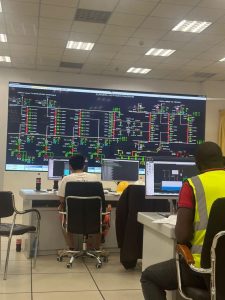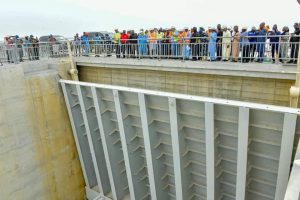With the recent successful reliability test at the Zungeru Hydro Power Plant, an additional 624 megawatts (MW) of electricity has now been integrated into the national grid.

This massive boost couldn’t have come at a better time, given Nigeria’s recent woes of unreliable power supply which had seen many Nigerians unable to get few hours of electricity supply in a day.
This reduction in power supply was attributed to gas supply constraints to power many of the nation’s gas-fired power plants as well as legacy debts in the electricity value chain which led to electricity generating companies (GENCOS) declining to supply some debtor distribution companies (DISCOS) with electricity.
The Zungeru Hydro Power Plant is Nigeria’s second largest hydropower plant after the Kainji Hydro power station and its successful connection to the national grid has significantly increased the resilience and reliability of the national grid.
The ambitious power plant is a major achievement of the APC-led federal government. The administration of former President Muhammadu Buhari handed over engineering, procurement, and construction to a Chinese consortium comprising China National Electric Engineering Company (CNEEC) and Sinohydro after initial construction began in 2013.
The Zungeru project was completed in May 2023. The administration of President Bola Ahmed Tinubu ensured continuity with the concession process. The Concession Agreement was signed on December 13, 2023, between the BPE and Penstock Limited. Following FEC approval, the Concessionaire fulfilled its obligation by paying 50 per cent of the commencement fees on January 5, 2024.
With the concession agreement, Nigeria is set to earn $70m annually from the Zungeru power plant for the next 30 years. This represents significant return on investment for the Federal Government as it will earn at least $2.1 billion from the concessionaire before taking back full ownership of the complex that cost $1.3 billion to build.
Penstock Energy Ltd is a subsidiary of Mainstream Energy Solution Ltd, the concessionaire of Kainji and Jebba Hydro Power Plants (HPP), which have an installed capacity of 760MW and 578.4MW respectively.
The Zungeru dam has a gigantic reservoir with a capacity to hold 10.4bn cubic meters of water. The power project is estimated to generate 2.64 billion kWh of electricity annually, which will meet close to 10 per cent of Nigeria’s total domestic energy needs. Apart from its power generation, the Zungeru hydropower project built on the upper and middle reaches of the Kaduna River near Zungeru in the Niger State will also provide flood protection and water for irrigation to the surrounding areas.

The long-awaited construction of the ambitious Mambilla hydropower project in Taraba, which is expected to produce 3,050 MW of electricity, would further enhance the stability of power supply in the country as it would ensure the country is not over-reliant on fossil fuel for power generation.

